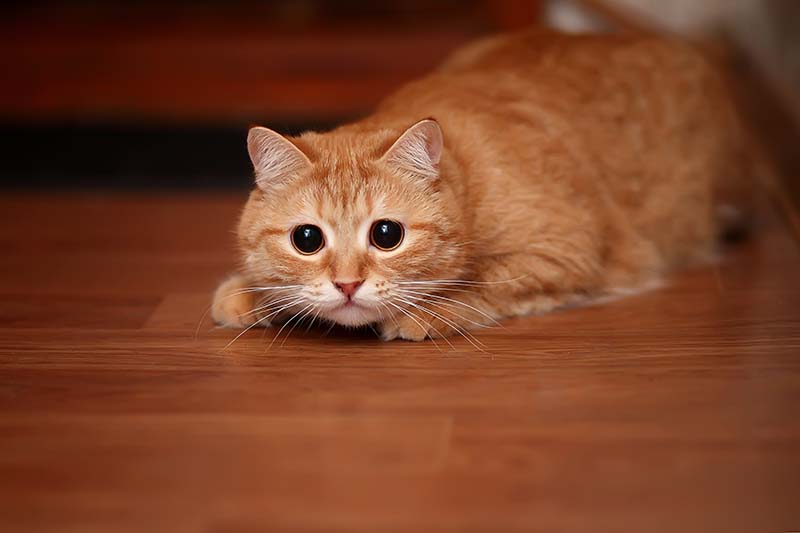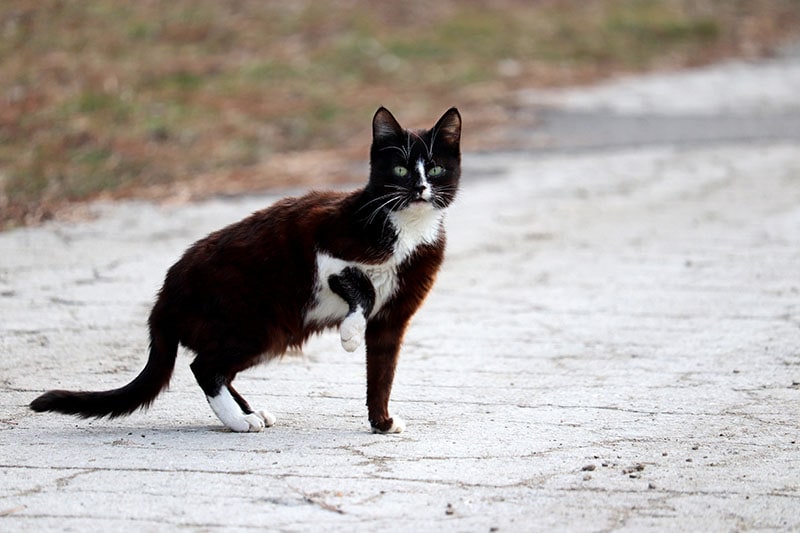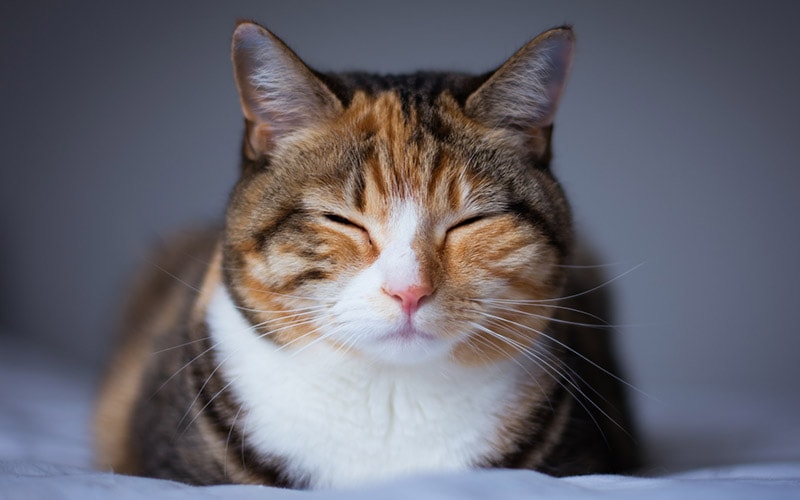VET APPROVED

The information is current and up-to-date in accordance with the latest veterinarian research.
Learn more »Click to Skip Ahead
Cats are incredibly sensitive to the people around them and their environments. They often become attached to their human companions, and studies suggest that the bonds developed between cats and people may resemble those between human parents and children.
Cats can feel down if we don’t provide them with the care and attention they need. Events and environments that have negative consequences in cats can produce negative reactions in them, and are likely to result in them feeling hurt, unhappy, or emotionally distressed.

Which Events Commonly Trigger Feline Sadness?
Environmental changes are common triggers of feline stress and unhappiness. The arrival of a new baby or moving can be extremely difficult for some cats to adjust to. They are most comfortable when able to relax into predictability and routine, but health issues and grief can also cause cats to feel a bit down.
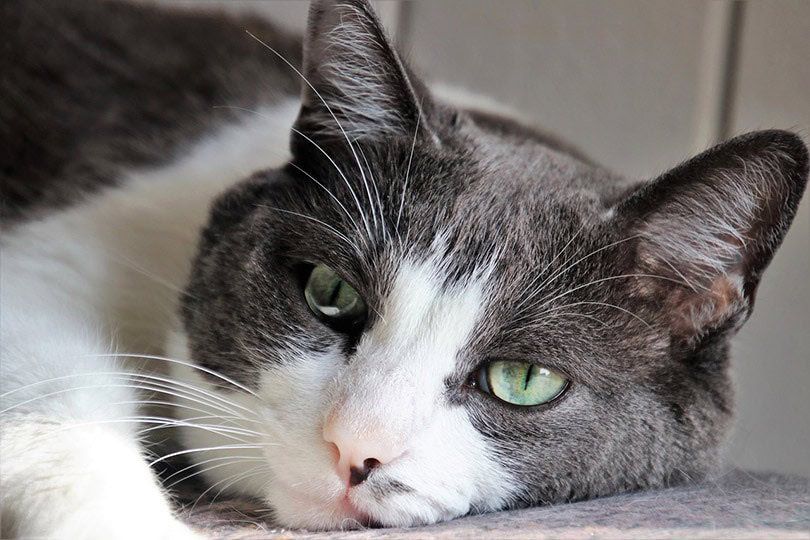
1. Moving to a New Home
As creatures who love routine and keeping a stable safe territory, cats often respond negatively when they have to move to another home. Moving can be incredibly stressful for people and often requires lots of planning, and just getting packed and ready for the big day involves changes in daily household activities.
This can lead to cats not getting attention at the times and in the ways they’ve come to expect, which sometimes develops into stress. Cats will also need to go through an adaptation period of varying length after arriving in new homes. For example, if they suddenly have more limited access to the outdoors or move into smaller spaces, they’ll need time to become comfortable in their new surroundings.
2. The Arrival of a New Baby or Pet
New babies are notorious for causing cats to become anxious and withdrawn. Not only do kitties need to adapt to all sorts of new smells, but babies also make lots of noise, which can be difficult on cats’ sensitive hearing.
The schedule shifts and lack of routine that often come with the arrival of a new baby can also lead to cats feeling neglected since they’re not getting love and affection in the ways they’ve come to anticipate. They can also become anxious due to the changes that come with adopting another pet.
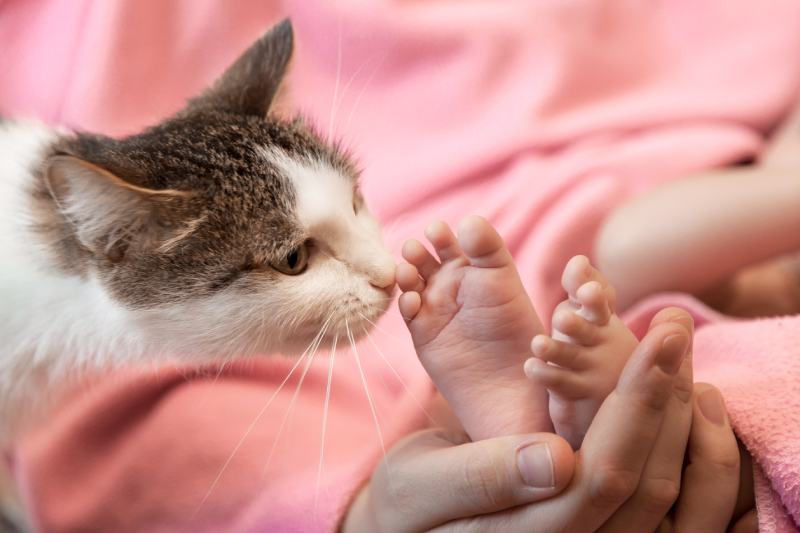
3. Grief or Loss of a Family Member
The loss of family members can deeply upset cats. Evidence suggests that cats experience grief after the loss of companions. Signs such as lack of interest in eating, changes in sleeping patterns, and increased vocalization are often seen in grieving pets. Others change where they typically nap, and many turn to their favorite humans for more attention. They can react similarly when one person moves out due to divorce.
4. Schedule Changes and New Jobs
Cats generally rely on predictable household activities and routines. They come to expect things like cuddles and a bit of conversation from their favorite people at specific times, such as right after breakfast.
They can become depressed when they keep looking for affection in the same places and coming up empty-handed. Changes in work schedules and new jobs can often cause subtle schedule shifts that cats need time to adjust to and accept.
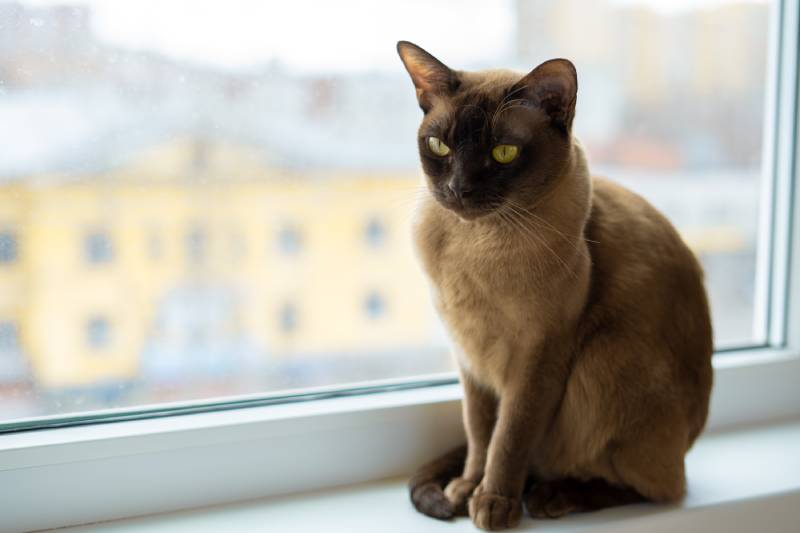
5. Health Problems
Pain, weakness, and any health problem can also wreak havoc on a cat’s emotional well-being. When cats face physical limitations, they cannot reach their favorite places, play, and enjoy their usual activities. Arthritic cats that enjoy spending time in window perches may become depressed when they can no longer get to their regular lookout spot, and cats that experience traumatic injuries often need time to heal and become accustomed to navigating the world in new ways.
If you are concerned about the health and well-being of your pet, seek veterinary advice for the best course of action.
Are There Ways to Cheer Cats Up?
When things settle or your cat receives the treatment they need, they will start feeling better soon, particularly when routine or environmental changes are causing them to be upset. In the meantime, you can cheer them up by serving tasty treats and spending more time with them.
Tasty Treats
Giving cats a few extra treats can sometimes lift their spirits. Cat milk and vet-approved snacks can tempt pets that aren’t interested in eating to take a bite. A bit of bone broth made for cats poured over dry food can add flavor that may encourage them to take a few extra bites.
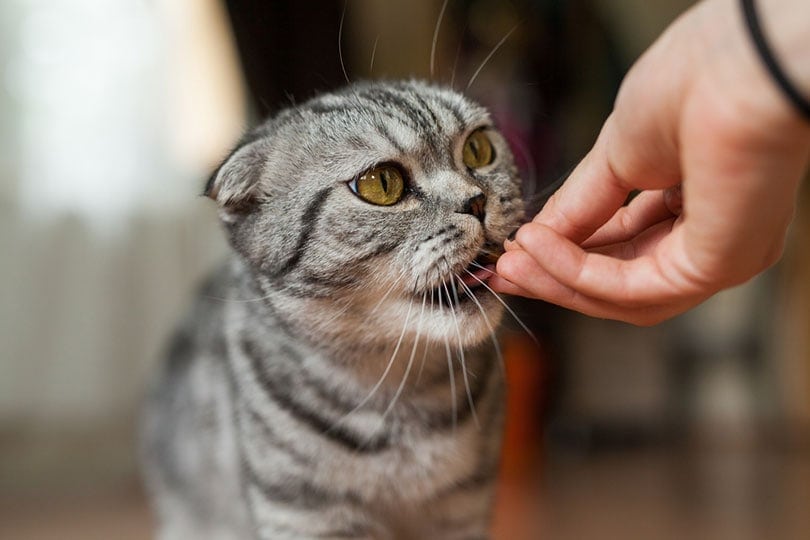
Cuddle Time
Cats respond well to extra love and attention when they’re not feeling so great. Spending time with cats that want to curl up and cuddle can help them get through difficult times, and many pets instinctively turn to their favorite humans for comfort and security. Creating a routine may also help them become more comfortable as they learn that love and cuddles are still on the menu, just at a different time.
Toys, Activities, and Environmental Enrichment
Making your home cat friendly by getting some additions such as extra toys, high perches, scratching posts, and interactive feeders can have a great positive impact on your cat’s well-being. Tossing a catnip mouse for your cat to chase or using a wand toy to get them moving can distract them from their sadness. Some may become more relaxed when they hear music for cats or calm classical music.
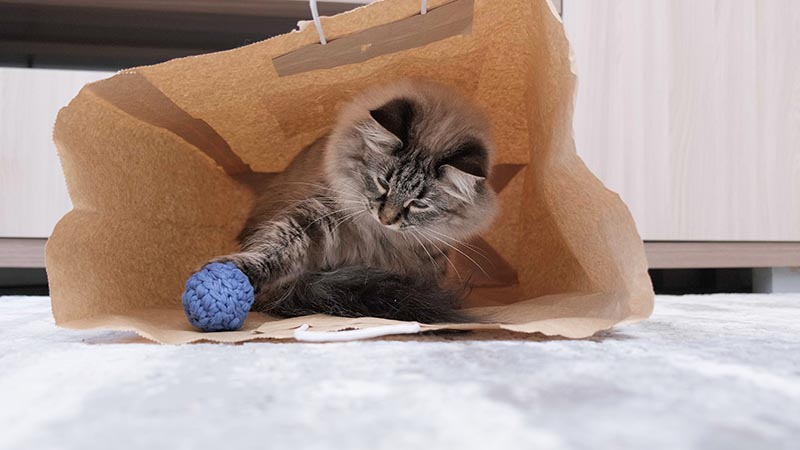
Pheromones
Commercial pheromone products can help some cats feel safer and more content. They release synthetic pheromones that mimic those naturally made by cats. Plug-in dispensers can be used to help cats adjust to situations such as moving, and some sprays are ideal for providing fast relief in stressful moments.

Conclusion
While there is limited scientific evidence addressing whether cats experience hurt feelings, it is clear that cats demonstrate emotions and behaviors that indicate they can be deeply affected by their environment and interactions with others. However, their emotional experiences and ways of processing relationships are quite different from ours. Although cats may react to something we do or changes in their surroundings, their emotional world is unique to their species and should not be directly compared to human feelings.
Moving to a new home and mourning the loss of a human or animal friend are just two common triggers for the feline blues. Distressed cats can find comfort when the underlying trigger is addressed and/or they have enough time to adjust. Spending extra quality time with them and making sure all their needs are met, will help them feel better without a doubt.
Featured Image Credit: Xeniya Butenko, Shutterstock
